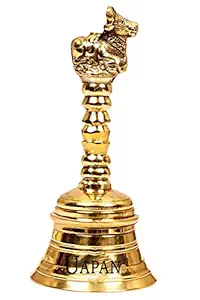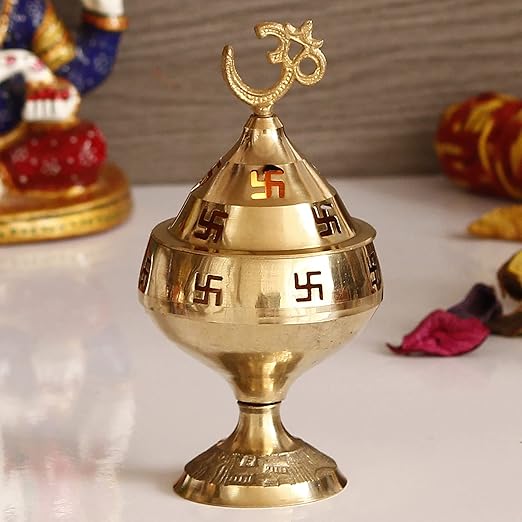શુ બેઠી માં પગ ઉપર પગ ચઢાવી
બોલતી નથી ચાલતી નથી કેમ રિસાણી
મારી માત ભવાની રમવા આવો ને મોરી માત
શુ બેઠી માં પગ ઉપર પગ ચઢાવી
શુ અપરાધ થયો છે અમારો
માડી આશરો એક છે તમારો
નમુ ચરણે પડી માંગુ ઘડીએ ઘડી
કષ્ટ કાપો આરાસુર ધામ વાળી
શુ બેઠી માં પગ ઉપર પગ ચઢાવી
અંબા આવી ને અમને રમાડો
ભકતો બોલાવે ચાંચર ચોક આવો
ઘુમો માંડેવડી લઈ આવો દયાળી થઈ
દુઃખ ભાંગો અમારા ઝટ માવડી
શુ બેઠી માં પગ ઉપર પગ ચઢાવી
Overview of "Shu Bethi Maa Pag Upar Pag"
Title & Meaning
'Shu Bethi Maa Pag Upar Pag' is a traditional Gujarati Garba song performed during Navratri, expressing devotion, joy, and cultural celebration.
Artist & Recording Details
Sung by various regional artists in Gujarat; both live performances and studio recordings are popular among devotees.
Genre & Occasion
A devotional Gujarati folk Garba song, typically performed during Navratri nights to honor Goddess Amba.
Language & Dialect
Lyrics are in Gujarati, reflecting regional dialects and expressions associated with traditional Navratri celebrations.
Popularity & Versions
Well-known across Gujarat; has multiple live and recorded versions enjoyed during community Garba events.
Lyrics Structure & Themes
Devotional Invocation
Lyrics begin with deep devotion, inviting Goddess Amba to bless dancers and devotees participating in the Garba.
Repetitive Chorus
Chorus lines are repeated for rhythm and group participation, encouraging everyone to join in the festive dance.
Imagery & Symbolism
Rich imagery and symbolism depict festivity, cultural rituals, and joyous celebration in Navratri traditions.
Community & Togetherness
Highlights unity and collective celebration, fostering social bonding among participants of the Garba.
Emotional Resonance
Lyrics evoke happiness, devotion, and enthusiasm, creating a spiritually uplifting and energetic atmosphere.
Musical & Performance Elements
Instrumentation & Rhythm
Traditional instruments like dhol, dholak, and hand claps provide a lively and rhythmic musical backdrop.
Tempo & Dynamics
Song starts moderately and gradually builds in tempo and intensity, guiding dancers through the performance.
Live vs Studio Renditions
Live Garba performances have interactive verses with audience participation, while studio recordings are polished and concise.
Dance Cues & Movements
Lyrics provide cues for clapping, spinning, and footwork, aligning with circular Garba formations.
Audience Participation
Encourages everyone to join in singing and dancing, making the experience inclusive and communal.
Festival & Cultural Significance
Navratri Connection
A key part of Navratri celebrations, adding spiritual and festive energy to the event.
Spiritual Meaning
Reflects devotion, faith, and surrender to Goddess Amba, seeking her blessings and protection.
Cultural Heritage
Represents Gujarati folk traditions, preserving music and dance heritage across generations.
Community Bonding
Brings people together through shared singing, dancing, and religious observance.
Joyful Celebration
Creates joy, devotion, and cultural pride during festive gatherings.
How to Use & Share
Translations & Transliteration
Providing translations allows non-Gujarati devotees to understand and connect with the song’s meaning.
Audio / Video Embeds
Include audio and video embeds of live Garba performances for immersive user engagement.
Printable Lyrics & PDFs
Offer printable lyrics in PDF format for personal, educational, or community use.
Performance & Dance Tips
Provide dance steps, costume ideas, and timing tips to enhance Garba performance experiences.
SEO & Social Media
Optimize for keywords like Gujarati Garba, Shu Bethi Maa Pag Upar Pag, Navratri Garba; enable social sharing for wider reach.
'Shu Bethi Maa Pag Upar Pag' is a traditional Gujarati Garba song performed during Navratri, expressing devotion, joy, and cultural celebration.
Sung by various regional artists in Gujarat; both live performances and studio recordings are popular among devotees.
A devotional Gujarati folk Garba song, typically performed during Navratri nights to honor Goddess Amba.
Lyrics are in Gujarati, reflecting regional dialects and expressions associated with traditional Navratri celebrations.
Well-known across Gujarat; has multiple live and recorded versions enjoyed during community Garba events.
Lyrics begin with deep devotion, inviting Goddess Amba to bless dancers and devotees participating in the Garba.
Chorus lines are repeated for rhythm and group participation, encouraging everyone to join in the festive dance.
Rich imagery and symbolism depict festivity, cultural rituals, and joyous celebration in Navratri traditions.
Highlights unity and collective celebration, fostering social bonding among participants of the Garba.
Lyrics evoke happiness, devotion, and enthusiasm, creating a spiritually uplifting and energetic atmosphere.
Traditional instruments like dhol, dholak, and hand claps provide a lively and rhythmic musical backdrop.
Song starts moderately and gradually builds in tempo and intensity, guiding dancers through the performance.
Live Garba performances have interactive verses with audience participation, while studio recordings are polished and concise.
Lyrics provide cues for clapping, spinning, and footwork, aligning with circular Garba formations.
Encourages everyone to join in singing and dancing, making the experience inclusive and communal.
A key part of Navratri celebrations, adding spiritual and festive energy to the event.
Reflects devotion, faith, and surrender to Goddess Amba, seeking her blessings and protection.
Represents Gujarati folk traditions, preserving music and dance heritage across generations.
Brings people together through shared singing, dancing, and religious observance.
Creates joy, devotion, and cultural pride during festive gatherings.
Providing translations allows non-Gujarati devotees to understand and connect with the song’s meaning.
Include audio and video embeds of live Garba performances for immersive user engagement.
Offer printable lyrics in PDF format for personal, educational, or community use.
Provide dance steps, costume ideas, and timing tips to enhance Garba performance experiences.
Optimize for keywords like Gujarati Garba, Shu Bethi Maa Pag Upar Pag, Navratri Garba; enable social sharing for wider reach.


